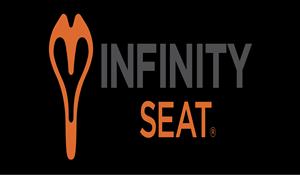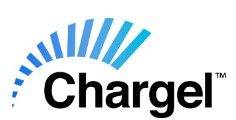Bob Hubbard
TCSD Conversation by Craig Zelent
The TCSD membership roster is deep with talented and interesting people.I had the privilege recently of talking triathlon with one of our world class athletes, Bob Hubbard.Bob has had quite the athletic and professional career.Please read below and you will enjoy getting to know one of the great gentlemen of our club.

Craig: What sports did you do before triathlon? How high a level did you reach in your primary sports?
Bob: Being involved in sports was part of our family lifestyle from as early as I can remember.As a kid in Canada, I learned to skate on the Frozen Ottawa River before I was old enough to go to school.My dad also taught me to swim at the “Y”. In those days the “M” in YMCA really stood for MEN and we always swam in the nude! (Maybe we should introduce that concept at La Jolla Cove on Fridays?)
Competitively, I grew up playing hockey and was part of an elite age-group team that won a Provincial Hockey Championship in Quebec.Football was my favorite high school sport and I played both Defensive Back and Quarterback.In college I played hockey at Acadia University in Nova Scotia and later played football at the University of New Brunswick where I was starting Quarterback in my Senior Year.
Craig: Who was your favorite athlete when you were growing up? Why did you admire this person so much?
Bob: The most influential athlete in my life was, without a doubt, my Dad. He competed at a high level playing football in the “old” Canadian Football League and he was also a national champion paddler. We participated in many sports together and he remained competitive throughout his life.As a Senior he became a Canadian Champion in Curling (possibly only significant to Canadians?)His enthusiasm and discipline as an athlete were part of his lifestyle until he passed away recently (age 96) as the result of a pedestrian accident.
My dad and I were very close and he influenced me not only in my early competitive years but also now in endurance sports. If not competing together, he was“with me” in other ways---by accompanying me to the Boston Marathon or sponsoring me in Ironman Canada or volunteering with me at a triathlon.He may hold the record for being the oldest (92) volunteer at the San Diego Triathlon Classic!
His positive and “go for it” spirit is ever-present.
Craig: When did you get started with triathlons and what prompted you to try?
Bob: My first triathlon was the Solana Beach Sprint in July 2007.Earlier in the year I hurt my leg while training for the Boston Marathon and I started swimming as cross training.Someone suggested that I should “try a Tri”.Although my first reaction was “no way”, at some point I wondered if I could do one and soon after that I attended my first TCSD meeting.
With some confidence building beginner sessions (the coaches were terrific) and some nudging from new friends, I signed up for a race. It proved to be both embarrassing and rewarding.After struggling though the swim and bike, I exited Transition 2 looking forward to my favorite event---the run.An official “burst my bubble”, however, and brought unwanted attention to me by yelling “Hey number 593, take off your helmet!”I think the laughter of those nearby made me fun faster to get away!Ironically, I made the podium in my age group and at that point became hooked on triathlons.
Craig: In multi-sport, which World Championships have you done and how were those experiences?
Bob: In 2009, Gold Coast in Australia was my first World event.In Australia, I frequented a local fish market/restaurant. The genuine hospitality of the owners turned into a friendship that continues today.In Beijing in 2011, the chance to compete on the Olympic Course was a highlight. Also, a hotel bellhop hooked me up with a friend who gave me a personal hike/tour of the Great Wall. That was especially memorable even with the language barrier!
I am gratefulfor the close friends that I’ve made on the National Team. In Auckland 2012, my roommate from Beijing (Mickey Syplot)and I teamed upagain. He booked us for a side trip to see some New Zealand glow worms.It turned out that the glow worms, which were really maggots, were deep underground and we ended up in a five-hour caving adventure!Repelling 75 feet through a hole into a cavern, zip-lining another 50 feet into a very cold river (48 degrees) and eventually rock-climbing back up through 2 waterfalls were what our Kiwi guides called a “fun workout”.For me it was an awesome and exciting “side trip” and an unexpected highlight of a World Competition experience that I will not soon forget!
I’m looking forward to London 2013 in September.
Craig: In 2013 you will represent Team Canada in your hometown of Ottawa for Duathlon Worlds and then in London for Triathlon Worlds.What will it mean to you to return to Ottawa to compete in a World Championship?
Bob: It is a real honor to finally be a member of Team Canada. All of my experience in endurance sports has been in the states and I have close friends who are members of Team USA.I look forward now to competing in Ottawa and teaming up with world-class Canadian athletes.
Along with my kids and grandkids, there are four generations of our family currently living in the area.In fact, last May my daughter Kari invited me to join her and my grandson Rory in the Capitol City 5K in Ottawa. Rory finished 3/147 in his age group and it was great to compete together!I’m anticipating another very proud and emotional experience in Ottawa next month.
Craig: You and your wife, Marilee, were at this year’s Boston Marathon.What was your experience like?
Bob: This year we were fortunate to stay in Boxford (north of Boston) with friends from Team USA.We all rode as a group to the starting line in Hopkinton.
When the tragic bombing occurred, the real source of anxiety for Marilee and I was our inability to communicate. I was at mile 23 and Marilee was on her way to the Finish Line. Cell phones were shut down and we had no way to confirm each other’s safety.Fortunately we had all decided to meet at a local pub after the run. We both made our way independently to the pub but Marilee was nervous for a long time because it took me over 7 hours to get there! A few in our group did suffer some minor cuts from glass. My only physical discomfort was due to the course closures that turned my marathon into a 30-miler.
Craig: 2014 will be your 10th Boston Marathon.What are your thoughts on participating in what will certainly be one of the most heavily anticipated events in all of sports?
Bob: I’m not sure what to expect of Boston 2014.There will be a wide range of emotions as the city and the participants rebound from the 2013 tragedy. For us, Boston has become much more than the race itself. We love the welcoming attitude of Bostonians and we each enjoy Boston “on foot”---me as a runner and Marilee as she walks mile after mile through the parks and by the waterfront.
The 25,000 runners and 2 million spectators are going to create enormous energy on Patriot’s Day, 2014. The week of ceremonies and events commemorating Boston 2013 will demonstrate the resiliency and strength of the running community and the city. “Boston Strong!” means something different to each of us but it will be a “rallying cry” for all that day. I’m proud that running my 10th Boston Marathon will provide Marilee and me the opportunity to be part of the celebration.
Craig: Which Ironman races have you done and what were those experiences like for you?
Bob: I have completed two Ironman Races---Arizona in 2008 and Canada 2012 (in Penticton).
From Arizona I learned how the commitment to training dominates your lifestyle for about 8 months (and that’s enough to challenge any relationship!)
The Canada experience was perhaps more rewarding but from a different perspective. I now have the dubious honor of being the “last man ever” to finish the highly regarded 30-year-old event. I totally “bonked” on the run and it looked (and felt) to me like a “DNF”.I managed to recover enough to finish within one minute and 16 seconds of the 17-hour cut-off.While not a very good Ironman time, the final 2 hours of the race proved to be the most intense personal challenge of my athletic career and the most rewarding finish.
Craig: How have you paid the bills over the years and what has been your career path?
Bob:My undergraduate degree was in Physical Education. Along with teaching in various Canadian ProvincesI coached a variety of school sports but focused mainly on High School Football and Wrestling.
Early in my career I recognized a need for counseling skills.In my graduate study at Springfield College (Massachusetts) and the University of Southern Mississippi (Masters in Educational Psychology), I focused on enhancing the performance of athletes through personal counseling.It was apparent to me as a coach that the emotional stability of an athlete directly affects his/her ability to perform and persevere through training. Addressing issues ranging from learning disabilities to substance abuse were of great interest to me and directed me toward “Sports Psychology”.
Currently in my professional career I am a Behavior Management Specialist and Consultant Psychologist.
Craig: Sports have been a big part of your entire career.If you could wave a magic wand over youth sports, what would you change?
Bob: My magic wand would be waved twice and the results would likely be controversial.
The first wave would have all coaches and parents ask themselves “Whose needs are being met---mine or the kids?”Too often adult enthusiasm for kids sports is for their own personal recognition. Youth sports should remain fun and benefit the kids!
The second wave would do away with academic eligibility for school sports.Participation in athletics is a valuable developmental experience that contributes to academic as well as personal well-being. Both as an Athletic Director and an Educational Psychologist I’ve conducted several surveys which indicated that the GPA’s of athletes should be addressed individually and not by a general ruling.
Craig: What is your favorite benefit of your TCSD membership?
Bob: My favorite benefit?Winning a beach cruiser as a volunteer recently at the Jump! Aquathlon! But that was the luck of the draw.
The real benefits of TCSD membership are intangible and on-going.Initially I benefited from excellent coaching provided for beginners.
As I gained experience it became time to give back and help others.Volunteering has provided a wide variety of opportunities including officiating at events, being a swim-buddy at races, and body-marking prior to the race.
TCSD has opened the door for me to compete. Volunteering has gifted me with many new experiences and a variety of new friends.
Craig: How has Marilee coped with your schedule since you became a triathlete?
Bob: Marilee is generally patient, tolerant and has a great sense of humor. She has always been generous in praising success. She’s also aware of my competition shortcomings---the most obvious of all being my lack of skills in T1 and T2. In fact, my terrible transitions have gained a considerable reputation among my friends and competitors.Marilee’s sense of humor was never more apparent than when she recently announced that when I die she is going to write on my tombstone: “Bob is not really dead yet.He’s still in transition!”
Craig: Bob, I hope you and Marilee both stay in transition for many years to come.The TCSD is proud to have you as our friend and member.Team USA’s loss this summer at Worlds will be Team Canada’s gain.Good luck!
Craig Zelent is a USA Triathlon Level 1 Certified Coach. Craig can be reached at 760-214-0055 or tricraigz@yahoo.com.








